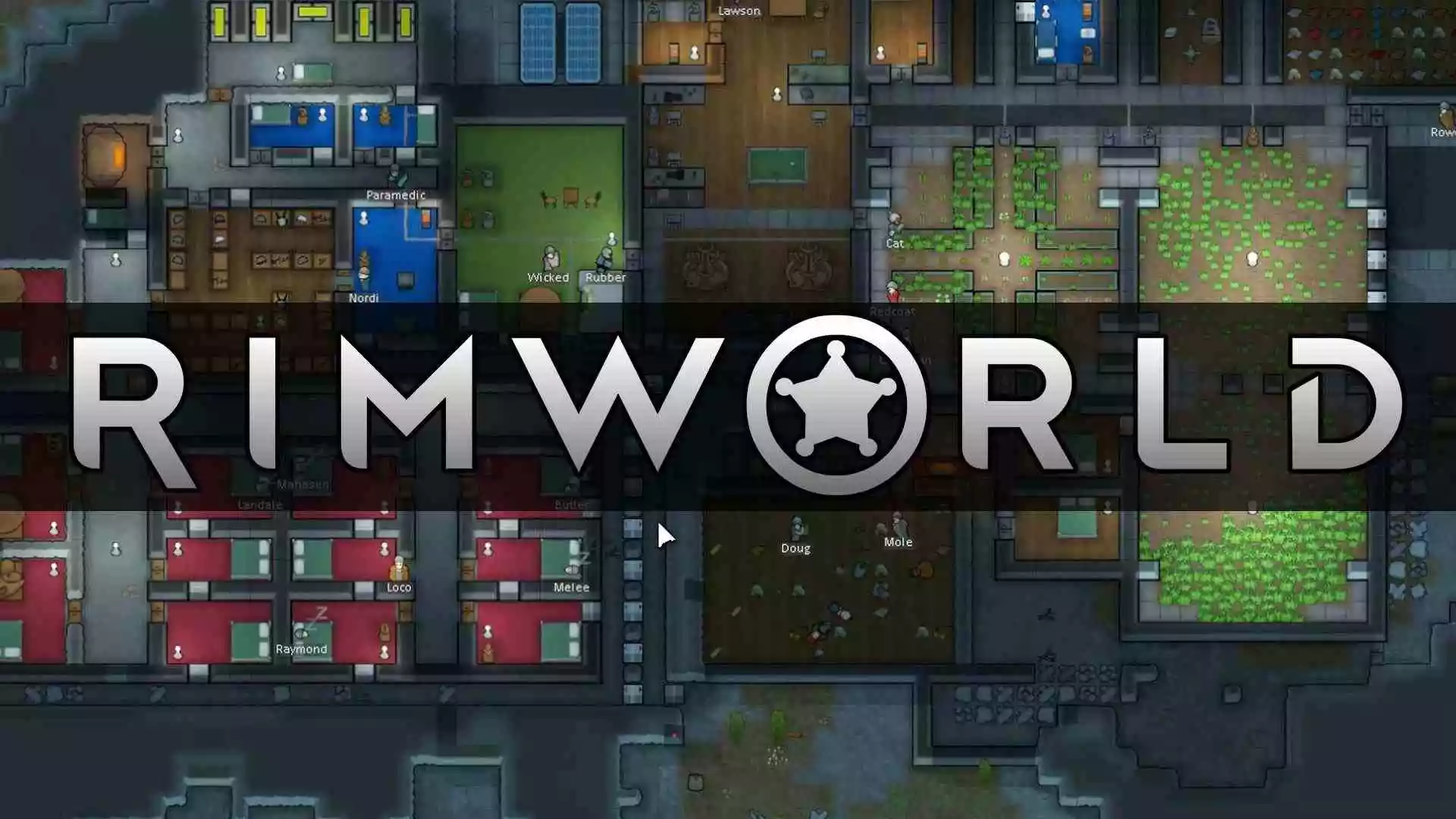RimWorld‘s multiplayer feature offers the opportunity to embark on cooperative excursions with other players, which carries the potential of shared storylines and strategic exploits. These potentially fruitful endeavours are, however, susceptible to being overshadowed by the enigmatic specter of desynchronization.
The issue known as “desync,” in which the experiences of different players are brought about by differences in the states of the game, presents a barrier to the seamlessness of online gameplay. As different colonies in a shared world work to shape their own fates, the complexities of keeping a continuous narrative thread and synchronized mechanics in place become increasingly evident.
During the course of this investigation, we dig into the difficulties of fixing RimWorld’s multiplayer desync, shining light on the elements that give birth to this disruptive issue and exposing the quest for unified and unimpeded multiplayer narrative. Here is our guide on Fix: RimWorld Multiplayer desync.
What causes RimWorld Multiplayer desync?
Short Answer: RimWorld multiplayer desync can arise due to variations in player actions, unsynchronized procedural generation, conflicting mods, inconsistent pathfinding calculations, network latency, and differences in system performance.
In this in-depth investigation, we look into the complex network of components that contribute to RimWorld’s multiplayer desync, illuminating the difficulties that wreak havoc on the flow of cooperative gaming.
1. Actions Taken by Players That Vary
Every player in RimWorld has the opportunity to make choices that have an effect on how their colony grows throughout the course of the game. The creation of buildings, the administration of resources, and the engagement in violent conflict are all examples of these activities.
However, even seemingly insignificant variations in player decisions can result in very different game situations. For example, if a player chooses to put more emphasis on their research rather than their defense, this might set off a domino effect that modifies the flow of events and makes their experiences unique from those of other players.
2. Unsynchronized Procedural Generation
The appeal of RimWorld may be traced back to its procedurally produced planets, each of which is distinctive in terms of the topography, resources, and difficulties it presents. However, these randomly generated features can sometimes cause desync in online games.
In the case that the procedural generation is not synchronized between players, there is a possibility that there will be inconsistencies in the characteristics of the terrain, the locations of the resources, and the event triggers. This might lead to scenarios in which the experiences of the colonists will differ, which may result in unforeseen consequences.
3. Conflicting Mods and Custom Content
The modding community of RimWorld provides the game with an additional degree of variety and inventiveness. The introduction of player-created modifications that contain incompatible code or conflicting game features, on the other hand, might result in varying experiences for users during gaming.
It’s possible that the modified content of one player would interact with the game’s fundamental mechanics differently from the modded material of another player, which might lead to unexpected results and eventual desync between the multiplayer participants.
4. Inconsistent Pathfinding Calculations
The colonists’ estimations of the best routes through the globe of RimWorld are an essential component in the navigational process that guides their travels.
Different movement patterns and interactions between colonists might occur as a result of differences in the synchronization of calculations or the pathfinding algorithms used while playing with many players. These discrepancies can ultimately result in a variety of situations, all of which lead to desync in online games.
5. Network Latency and Communication Delays
It is possible for there to be latency or delays in the transmission of information due to the digital connections that are used to link participants when playing in multiplayer mode. The timing of events, such as raids or the gathering of resources, might vary from player to player as a result of the effects of these network-related elements.
As a consequence of this, the states of the game might slowly become disjointed, which eventually leads to the appearance of desynchronization.
6. Variations in System Performance
It’s possible that different players will have different hardware capabilities, which will lead to different levels of system performance. It’s possible that events and calculations will be processed more quickly by faster systems, whilst slower systems may be subject to delays.
These differences in processing speed can generate a ripple effect, which results in quicker systems moving further ahead in time than slower ones, which contributes to desync.
7. Timing of Events and Simulations
The complex simulation of the colony world that is carried out by RimWorld includes ongoing events and mechanisms that communicate with one another.
If the timing of these occurrences isn’t exactly synchronized across players, even little discrepancies can mount over time, leading to varied results and a collapse of the shared narrative. This can happen even if the players are just slightly off from one another.
8. Interaction with Dynamic Events
The unpredictability of RimWorld’s dynamic events, such as meteor impacts, raids, and changes in the weather, is essential to the survival of the game. These occurrences have the potential to set off a chain reaction of reactions that will have repercussions throughout the game universe.
However, if the timing of these events and how they develop aren’t synchronized, the different results might lead to desync in multiplayer games.
Fix: RimWorld Multiplayer desync
In this in-depth article, we explore the intricacies of RimWorld’s multiplayer desync, illuminating its underlying causes and providing solutions to bring harmony back to your cooperative endeavors.
Method 1: The Effects That Different Player Actions Have On One Another
The actions of each player in the expansive realm of RimWorld have the potential to cause ripples in the story. Taking apparently little activities such as prioritizing research over building or making diplomatic decisions might eventually lead to big differences in opinion.
Getting rid of desync demands paying careful attention to player decisions and coming up with techniques to synchronize the activities of everyone taking part in a multiplayer game.
Method 2: Harmonizing Procedural Generation
The gameplay of RimWorld is defined in large part by its randomly generated planets, yet these worlds also have the potential to cause desynchronization. Different players may have vastly different experiences due to the fact that the terrain characteristics, resource placement, and event triggers can all be random.
The key to successfully overcoming this obstacle is to find a happy medium between the creation of distinctive worlds and the preservation of synchronization.
Method 3: The Importance of Modifications and User-Generated Content
The RimWorld modding community makes the experience more enjoyable but may cause compatibility difficulties that result in the game becoming out of sync. Mods that are incompatible with each other or different custom content interactions can weaken the cohesiveness of multiplayer games.
It is crucial, in order to reduce the impact of this source of desync, that modifications be curated with care and that players’ configurations be compatible with one another.
Method 4: Navigating Inconsistent Pathfinding
The pathfinding algorithms, which are essential for the movement of colonists, might vary from player to player, which can result in surprising behaviors.
To overcome this obstacle, you will need to synchronize the computations for pathfinding so that the activities of the colonists continue to be aligned with one another. This will allow you to maintain a common narrative when playing multiplayer games.
Method 5: Bringing Down the Latency of Networks and Communication Delays
Network latency causes information to be sent between participants at a slower rate than intended, which results in events occurring out of sync. Reducing these communication delays as much as possible by maintaining solid connections and keeping latency to a minimum is absolutely necessary in order to keep the shared rhythm of the RimWorld multiplayer experience intact.
Method 6: Harmonising the System’s Overall Performance
Different degrees of system performance might result in different processing rates, which is one factor that contributes to desync. To overcome this obstacle, the gameplay has to be optimized such that it can accommodate slower systems, or alternatively, players need to discover ways to standardize the sequence of events independent of their hardware capabilities.
Method 7: Simulated Occurrences of Timely Events
The simulation of RimWorld comprises ongoing events that communicate with one another in intricate ways. Disparities in the timing of events can compound in a multiplayer setting, leading to the desynchronization of the gameplay. It is absolutely necessary to carefully synchronize the event triggers and interactions in order to keep the narrative coherence intact.
Method 8: Taking into account the interaction of dynamic events
The unpredictability of RimWorld’s dynamic occurrences might make desync problems much more difficult. Differences in the timing of events, such as raids or changes in the weather, might magnify the existing differences in the experiences of different players.
Problems caused by a lack of sync may be avoided by making certain that all of these dynamic events are synchronized to the same beat.
Method 9: Techniques for Overcoming Sync Issues in Multiplayer Games
Desync in the multiplayer mode of RimWorld has to be addressed using a multi-pronged approach. The players need to communicate clearly with one another, synchronize their activities, and coordinate their judgments.
A more united multiplayer experience may be achieved by giving priority to modifications that are compatible with one another, optimizing gaming settings, and making a conscious effort to adopt a collaborative mentality.
Follow us on Twitter & like our Facebook page for more post-updates.

An experienced gaming content writer who emphasizes on offering the most recent information and how-to tutorials for the trending titles. Being a Hardcore gamer himself, he likes to try an array of games and likes to spend his time exploring them. He likes to unwind by listening to R&B music when he’s not writing about gaming stuff.


